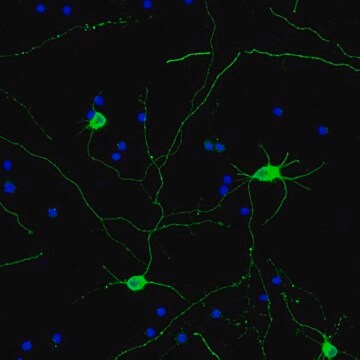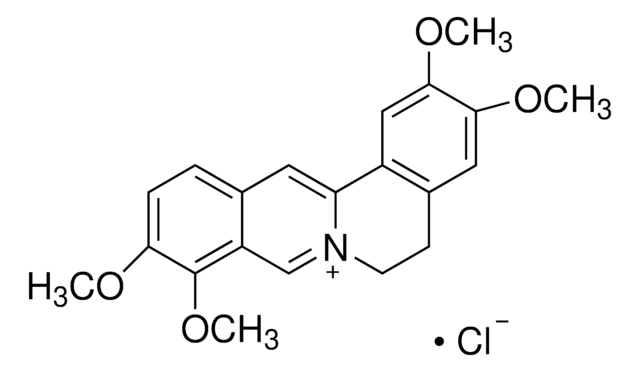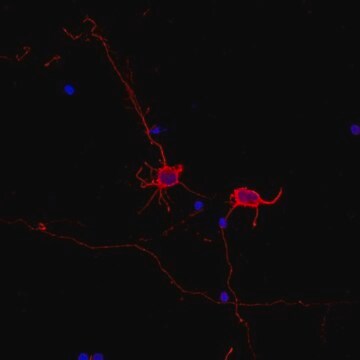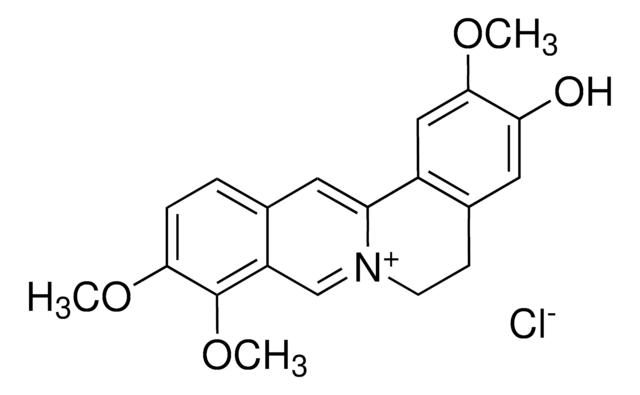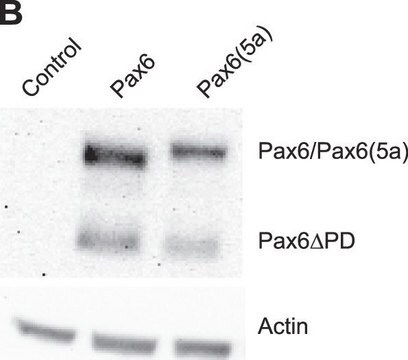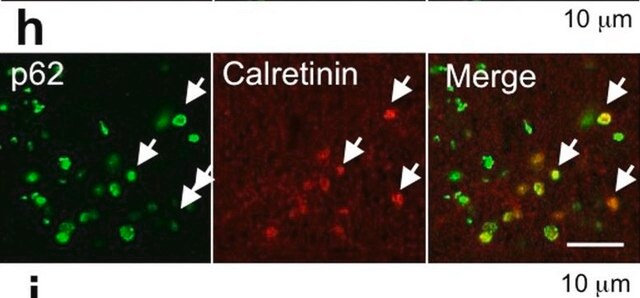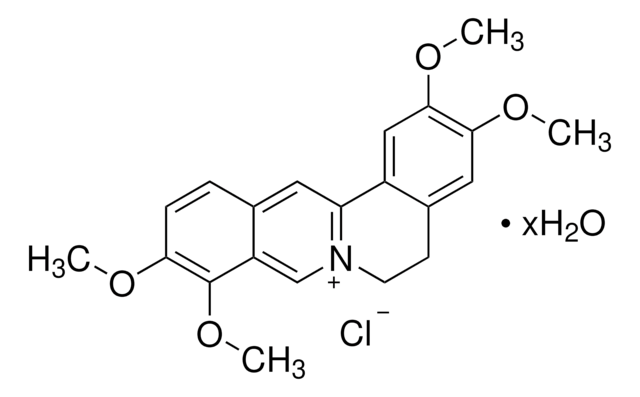ABN2300C3
Neuro-Chrom Pan Neuronal Marker Antibody-Rabbit, Cy3 Conjugate
Neuro-Chrom, from rabbit
Se connecterpour consulter vos tarifs contractuels et ceux de votre entreprise/organisme
About This Item
Code UNSPSC :
12352203
eCl@ss :
32160702
Nomenclature NACRES :
NA.41
Produits recommandés
Source biologique
rabbit
Niveau de qualité
Conjugué
CY3 conjugate
Clone
polyclonal
Espèces réactives
mouse, rat
Fabricant/nom de marque
Neuro-Chrom
Technique(s)
immunocytochemistry: suitable
immunofluorescence: suitable
immunohistochemistry: suitable
Conditions d'expédition
wet ice
Modification post-traductionnelle de la cible
unmodified
Description générale
Antibodies to neuronal proteins have become critical tools for identifying neurons and discerning morphological characteristics in culture and complex tissue. While the labeling from classic histological techniques such as Golgi staining and modern molecular approaches such as GFP constructs yield excellent cytoarchitectural detail, these approaches are technically challenging and impractical for many neuroscience research needs. Neuron-specific antibodies are convenient precision tools useful in revealing cytoarchitecture, but are limited to the protein target distribution within the neuron, which may differ greatly from nucleus to soma to dendrite and axon. To achieve as complete a morphological staining as possible across all parts of neurons, Millipore has developed a polyclonal antibody blend that reacts against key somatic, nuclear, dendritic, and axonal proteins distributed across the pan-neuronal architecture that can then be detected by a single secondary antibody. This antibody cocktail has been validated in diverse methods, cell culture and immuno-histochemistry, giving researchers a convenient and specific qualitative and quantitative tool for studying neuronal morphology.
Spécificité
Cat. # ABN2300C is specific to axons (neurites), dendrites, nucleus, and the cell body of neurons.
Reactivity with other species has not been determined.
Immunogène
Epitope: Whole Neuron Marker
Application
Neuro-Chrom Pan Neuronal Marker-Rabbit, Cy3 Conjugate is an antibody targeting the Pan Neuronal Marker protein, validated for use in ICC, IHC & IF.
Research Category
Neuroscience
Neuroscience
Research Sub Category
Neuronal & Glial Markers
Neuronal & Glial Markers
Qualité
Routinely tested Rat E18 cortex primary neurons in Immunocytochemistry.
Forme physique
Polyclonal antibody cocktail blend conjugated to Cy3 in PBS buffer with 15mg/mL BSA and 0.05% NaN3
Stockage et stabilité
Maintain at 2-8°C for up to 1 year from date of receipt.
Remarque sur l'analyse
Control
Rat E18 cortex primary neuron cell culture or mouse adult brain cryosections.
Rat E18 cortex primary neuron cell culture or mouse adult brain cryosections.
Clause de non-responsabilité
Unless otherwise stated in our catalog or other company documentation accompanying the product(s), our products are intended for research use only and are not to be used for any other purpose, which includes but is not limited to, unauthorized commercial uses, in vitro diagnostic uses, ex vivo or in vivo therapeutic uses or any type of consumption or application to humans or animals.
Code de la classe de stockage
12 - Non Combustible Liquids
Classe de danger pour l'eau (WGK)
WGK 2
Point d'éclair (°F)
Not applicable
Point d'éclair (°C)
Not applicable
Certificats d'analyse (COA)
Recherchez un Certificats d'analyse (COA) en saisissant le numéro de lot du produit. Les numéros de lot figurent sur l'étiquette du produit après les mots "Lot" ou "Batch".
Déjà en possession de ce produit ?
Retrouvez la documentation relative aux produits que vous avez récemment achetés dans la Bibliothèque de documents.
Zoeb Jiwaji et al.
Nature communications, 13(1), 135-135 (2022-01-12)
Alzheimer's disease (AD) alters astrocytes, but the effect of Aß and Tau pathology is poorly understood. TRAP-seq translatome analysis of astrocytes in APP/PS1 ß-amyloidopathy and MAPTP301S tauopathy mice revealed that only Aß influenced expression of AD risk genes, but both
Notre équipe de scientifiques dispose d'une expérience dans tous les secteurs de la recherche, notamment en sciences de la vie, science des matériaux, synthèse chimique, chromatographie, analyse et dans de nombreux autres domaines..
Contacter notre Service technique